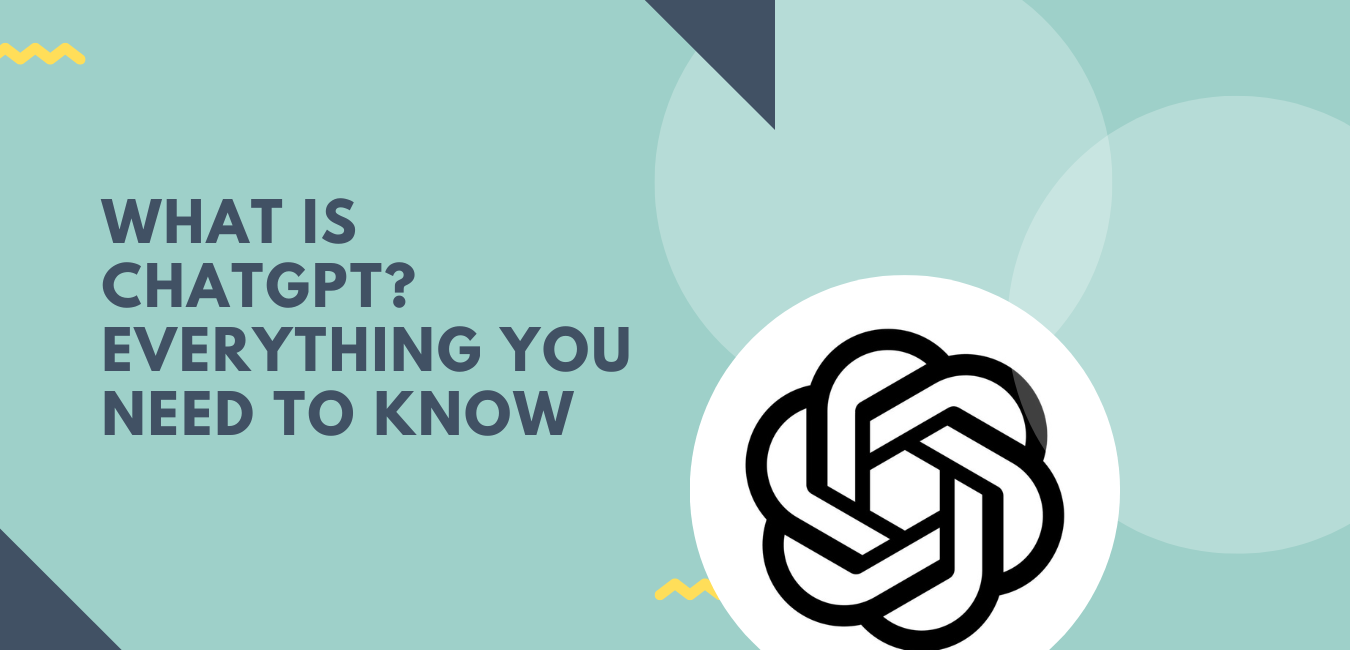What is ChatGPT? Everything You Need to Know
ChatGPT has been making waves, captivating the attention of users worldwide. Its advanced language capabilities and ability to engage in coherent conversations have sparked a surge of interest. And while ChatGPT is designed to be helpful and has its benefits, it’s important to remember that it has limitations as well.
Let’s dive deeper into learning more about ChatGPT and how organizations are leveraging it to their advantage for business success.
What is ChatGPT?
ChatGPT is an advanced language model developed by OpenAI. The AI system uses deep learning techniques to generate human-like text based on the prompts and questions it receives. It has been trained on a diverse range of internet text to provide informative and creative responses to user queries.
Additionally, ChatGPT has the ability to understand and generate conversations, making it suited for interactive interactions with users. In the last couple of months, it has been used for various purposes, including: answering questions, providing explanations, offering suggestions, and engaging in casual conversations.
Things to Know
- Language Generation: ChatGPT is a language model that generates human-like text based on the input it receives. It can understand and generate conversations for interactive dialogue.
- Training Data: It has been trained on a large dataset involving a wide range of internet text. Including books, articles, websites, and other sources to develop a better understanding of language.
- Creative and Informative: ChatGPT can provide informative responses to questions and engage in conversations. The system can offer explanations, suggest ideas, help with problem-solving, and more.
- Responsible Use: It’s important to verify information received from the model. OpenAI has implemented safety measures to filter out certain types of content but encourages users to report any problematic outputs they encounter.
- Ethical Considerations: As with any technology, the use of ChatGPT raises ethical considerations. It’s important to use the model responsibly, respecting privacy, and understanding the potential impact of generated content.
Pros and Cons
Pros
- Versatility: ChatGPT can engage in a wide range of conversations, from casual discussions to more specific topics, providing information and suggestions.
- Availability: It is accessible anytime, anywhere, as long as you have an internet connection. Additionally, it recently released its own app for users.
- Language Comprehension: The model has been trained on a vast amount of data, enabling it to understand and respond to a wide array of questions.
- Learning Capabilities: ChatGPT can continuously learn and improve based on user interactions and feedback, allowing it to become more accurate and helpful over time.
Cons
- Lack of Real-Time Information: ChatGPT’s knowledge is based on pre-existing data up until September 2021, so it might not have the most up-to-date information on current events or recent developments. Therefore, it’s important for businesses to verify all information received from the model.
- Lack of Context: The model may provide responses that lack context or fail to fully understand the nuances of a conversation or prompt, leading to potentially inaccurate or irrelevant answers.
- Over-Reliance on Training Data: ChatGPT’s responses are based on patterns it has learned from the training data, which means it may occasionally produce biased or inaccurate information.
- Limited Emotional Understanding: It may not fully comprehend or empathize with human emotions, leading to responses that may be correct but lack emotional sensitivity.
Overall, ChatGPT has many benefits but it’s important to use its responses as a helpful starting point and always double-check the accuracy and reliability of the information provided.
Leveraging ChatGPT for Business
- Customer Support: Many businesses can employ ChatGPT to provide automated customer support. This helps improve response times, provides 24/7 support, and reduces the workload on human customer service agents.
- Virtual Assistants: ChatGPT can handle tasks such as scheduling appointments, answering frequently asked questions, and providing personalized recommendations. Businesses can streamline operations and free up resources for more strategic activities.
- Sales and Marketing: The model can interact with website visitors, qualify leads, provide product information, and guide customers through the sales process. This interactive approach can help enhance engagement and potentially increase conversion rates.
Remember, while ChatGPT offers automation and efficiency benefits, businesses need to ensure proper monitoring and guidelines in order to maintain accuracy and avoid bias.
Using ChatGPT
- Provide Clear and Specific Prompts: To get more accurate and relevant responses, be clear and specific with your prompts. Clearly state your question or request, providing any necessary context.
- Experiment and Iterate: Don’t hesitate to experiment with different phrasings or rephrase your question to get better results. It can sometimes be helpful to break down complex queries into simpler ones.
- Verify Information Independently: While ChatGPT can provide information, it’s important to independently verify the facts it presents. You should not rely solely on ChatGPT’s responses for important decisions or factual accuracy.
- Keep Privacy in Mind: Remember that interactions with ChatGPT may be retained for a limited time to improve the model. If privacy is a concern, be cautious about sharing sensitive information.
Take Your Business to New Heights
The digital landscape offers a vast potential for businesses to expand their reach and impact. At Engage Buzz Media, we understand the challenges businesses face, and we’re here to guide you towards success. Unlock new opportunities in the digital world and position your brand for long-term success.
Reach out to us for a complimentary consultation.

